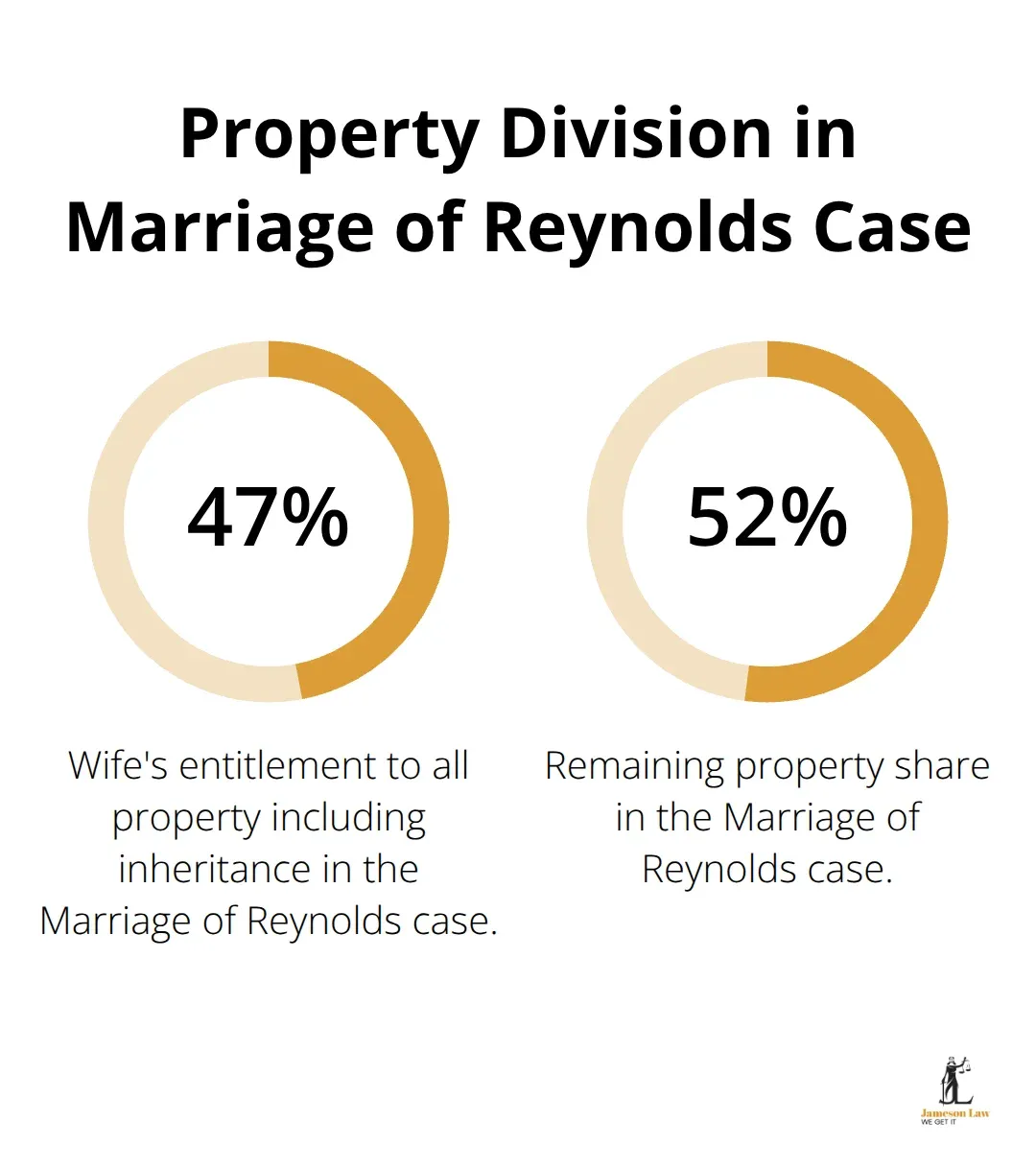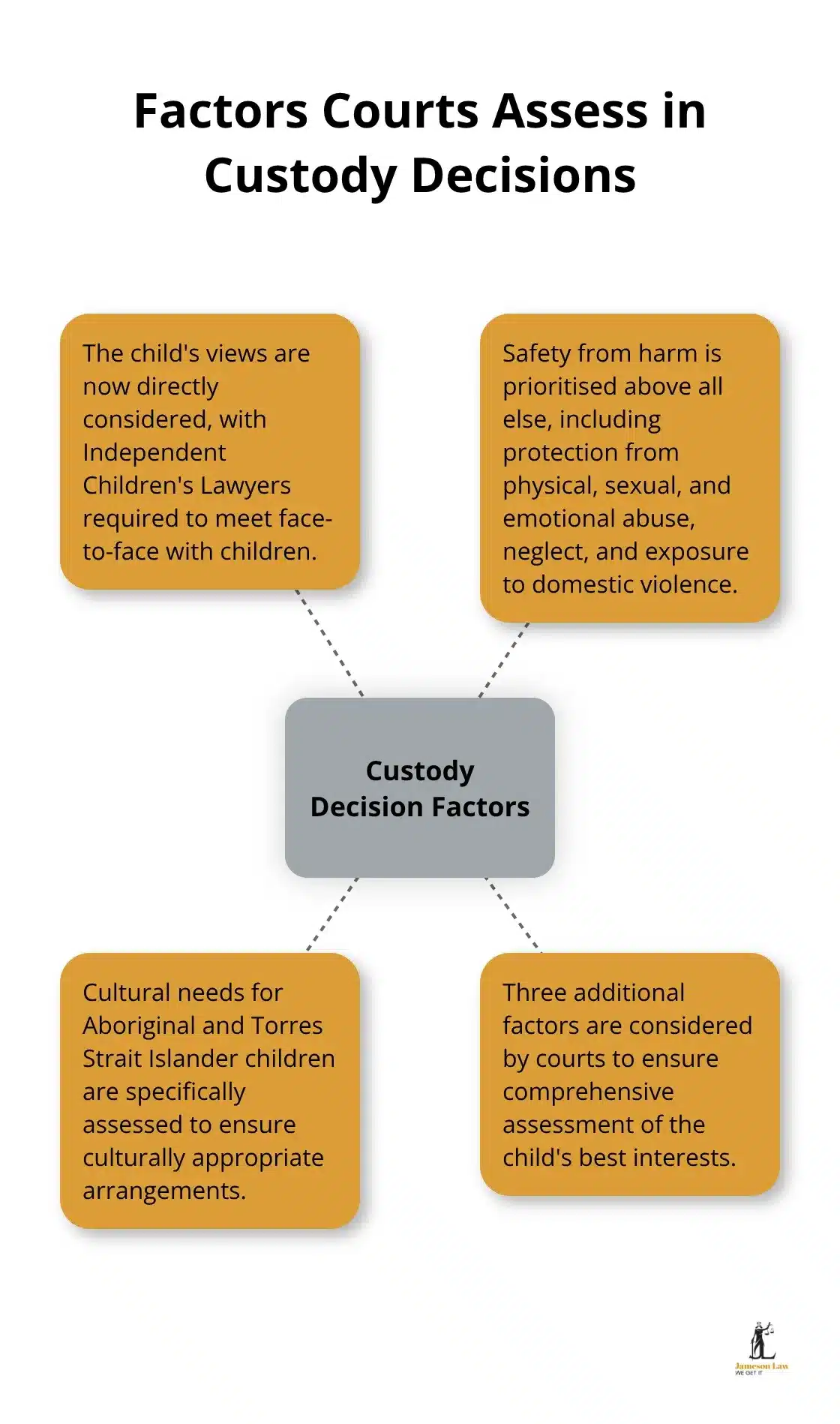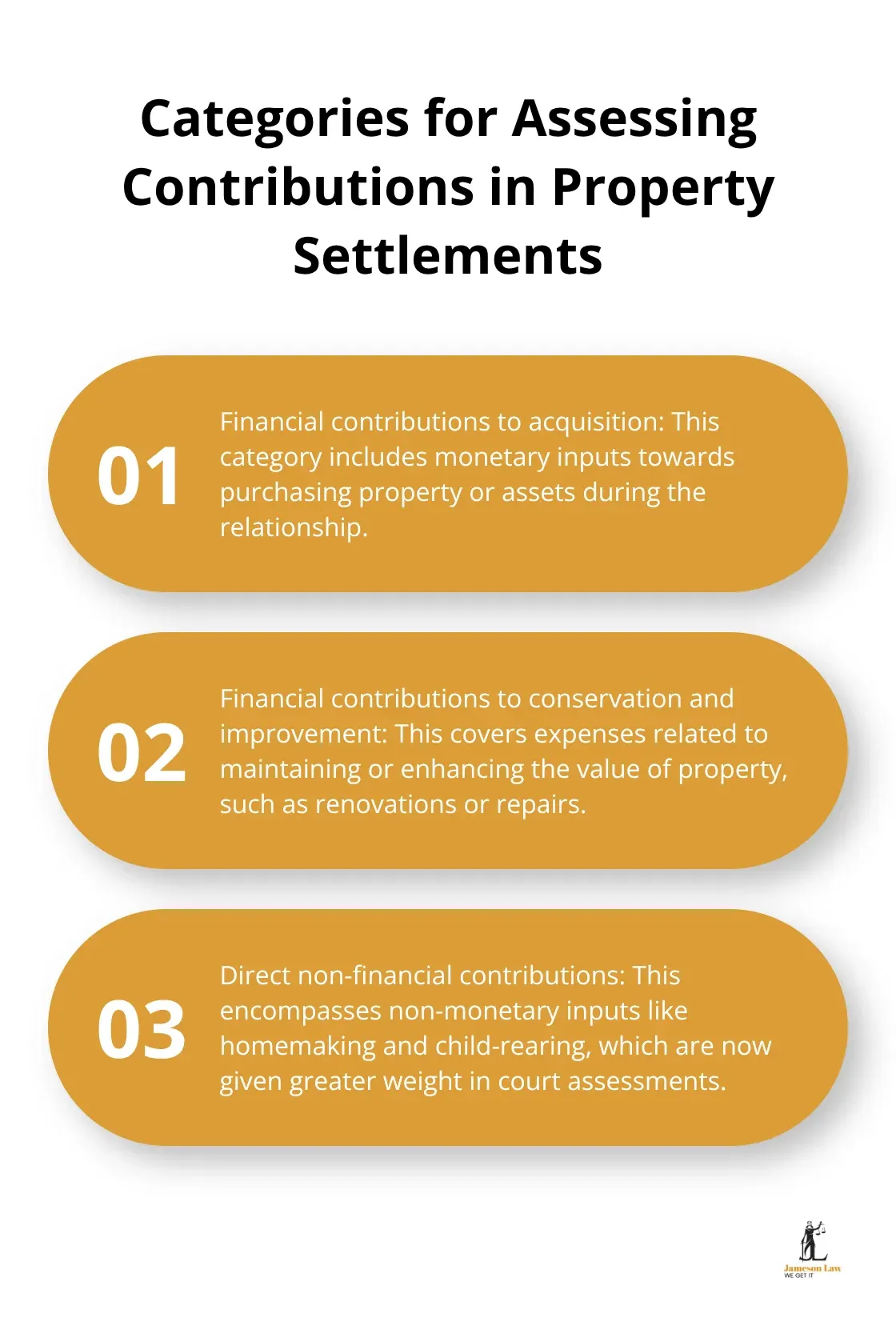Australian family law continues to evolve at pace, with meaningful changes affecting property settlements, parenting decisions, child support and family violence protections right through 2024 and into 2025. We at Jameson Law have compiled this watchlist to help NSW families understand what has changed, what it means for your rights and how to prepare evidence that supports a fair outcome.
What Are the Biggest Changes Reshaping Family Law Right Now
Property Settlement Evolution
The Family Law Act 1975 (Cth) framework remains the base, but recent reforms and case guidance have reinforced a practical, evidence-driven assessment of contributions and future needs rather than rigid formulas. Courts are giving closer attention to non-financial contributions like homemaking and child-rearing, and to the real impact of career sacrifices. For a plain-English explainer, see the Attorney-General’s overview of family law reforms and our guide to the Family Law Amendment Act 2023 changes.
In practice, separating couples should document household management, primary care of children, renovations and maintenance, and any foregone opportunities. Our step-through on how property is divided and deep-dive on section 79 contributions can help you prepare. For superannuation, see the ATO’s guidance on family law and super splitting.

Child Support Calculations
Services Australia continues to refine assessments so they reflect care patterns and income more accurately. Overnight care percentages and verified income changes matter, and indexed figures help keep assessments current. Start with Services Australia – Child Support and our guide on how child support works. If your income has changed materially and on a lasting basis, you can request a review. Keep transparent records of shared expenses. ASIC’s Moneysmart tools can help with budgeting while arrangements settle.
Domestic and Family Violence Protections
Recent Australian reforms have broadened what courts recognise as family violence, including patterns of coercive control and economic abuse. NSW protections operate under the Crimes (Domestic and Personal Violence) Act 2007 (NSW). See also the national policy context in the National Plan to End Violence against Women and Children and our Sydney overview of domestic and family violence options. For tech-facilitated abuse, visit the eSafety Commissioner.
How Do New Laws Change Your Family Rights
Parenting Decisions and Best Interests
From 6 May 2024, reforms removed the prior presumption of equal shared parental responsibility. Courts now focus squarely on safety and best interests, weighing a set of factors that include the child’s views, protection from harm and cultural considerations for Aboriginal and Torres Strait Islander children. See the Federal Circuit and Family Court guidance on parenting at fcfcoa.gov.au and our explainer on the 2024 parenting changes.
Independent Children’s Lawyers have greater obligations to meet with children directly, improving how a child’s voice is heard. For a practical starting point on orders, see Parenting Orders in NSW.

Financial Disclosure and Transparency
Courts expect full and frank disclosure across the entire relationship period. That includes bank statements, tax returns, superannuation, business interests and digital assets like cryptocurrency. The message is simple: disclose early and fully. Read the Court materials on disclosure and case management at fcfcoa.gov.au and our practical checklist on what the 2023 changes mean. If you have a Binding Financial Agreement, the High Court’s approach in recent guidance underscores the need for independent legal advice and genuine disclosure before enforcement. Our overview of spousal maintenance also explains how disclosure impacts needs-based claims.
What Rights Do You Have Under New Family Laws
Property Rights and Evidence
Outcomes now turn heavily on the quality of your evidence, not on automatic percentages. Courts look at financial contributions to acquisition, conservation and improvement, direct non-financial contributions, and indirect contributions to the family’s welfare. Keep bank statements, renovation invoices, rosters of care, and records of career decisions that supported the family. Our guide to proving contributions will help you assemble the right documents. The ABS and AIHW offer useful context data for planning and support services: ABS, AIHW.

Parental Responsibilities Day to Day
Daily decisions can usually be made by the parent with care at the time, while major long-term issues such as education and medical treatment are approached with a child-centred lens. Safety concerns trump shared arrangements where there is family violence. See how child support works and our simple outlines of parenting orders and variations. For professional standards across the sector, refer to the Law Council of Australia and the Law Society of NSW.
Financial Support Compliance
Child support and maintenance obligations are enforced more consistently, with consequences for non-compliance including debt recovery and potential travel restrictions. Keep transparent records and communicate changes early. If your circumstances have shifted, seek a review through Services Australia. If a property order was made without full disclosure, there are pathways to challenge outcomes. Start a confidential discussion with our team: contact Jameson Law.
Final Thoughts
The Family Law Amendment Act 2023 and 2024–2025 updates have shifted the focus to safety, evidence and transparency. Property settlements prioritise real-world contributions, parenting decisions centre the child’s needs, and financial disclosure is non-negotiable. If you are separating or updating arrangements, plan early, gather documents and get tailored advice.
We help families across Sydney and NSW navigate these changes with clear strategies and cost-effective steps. Explore our resources on family law, property division, parenting orders and child support, then call (02) 8806 0866 to speak with our team.
General information only and not legal advice. Time limits and Court Practice Directions apply. If safety is an issue, call 000. For confidential support, contact 1800RESPECT.













